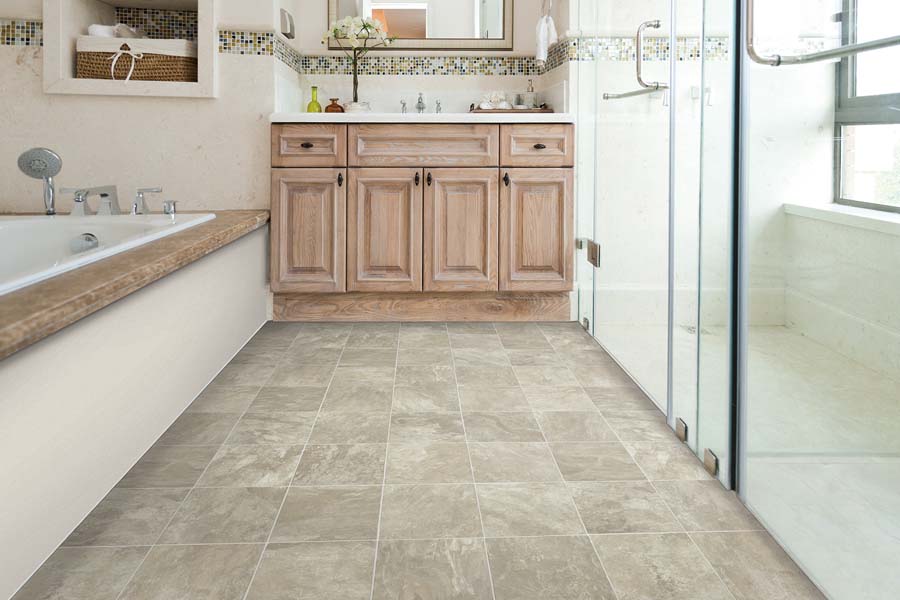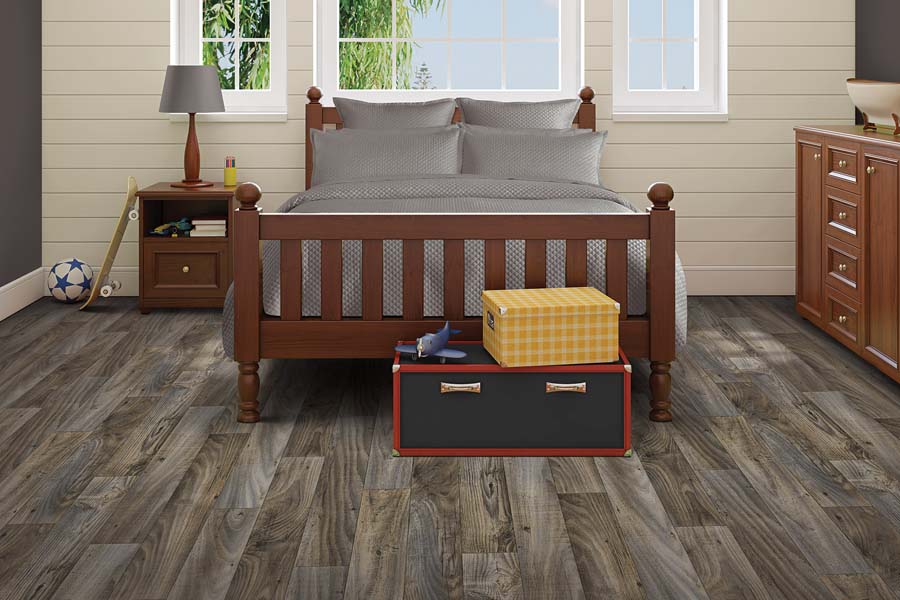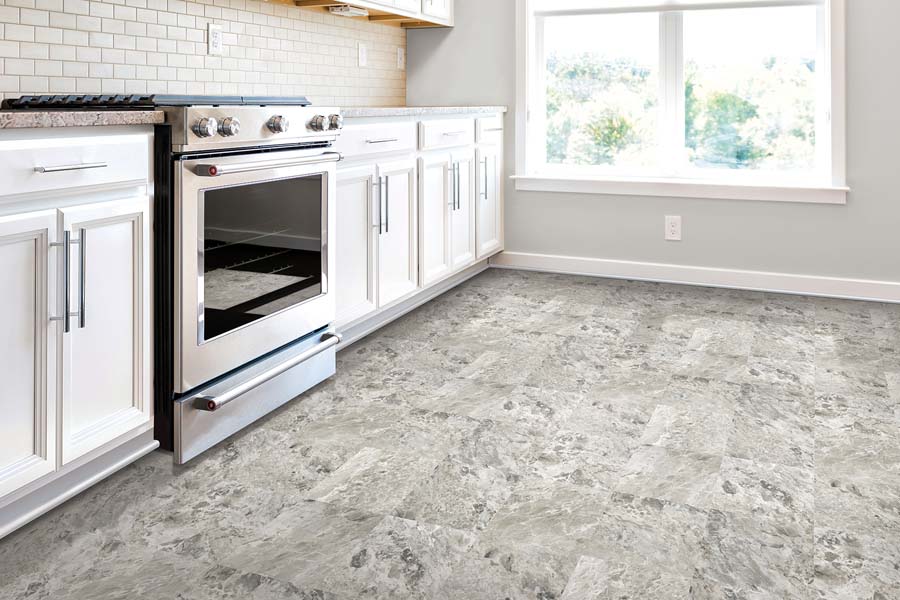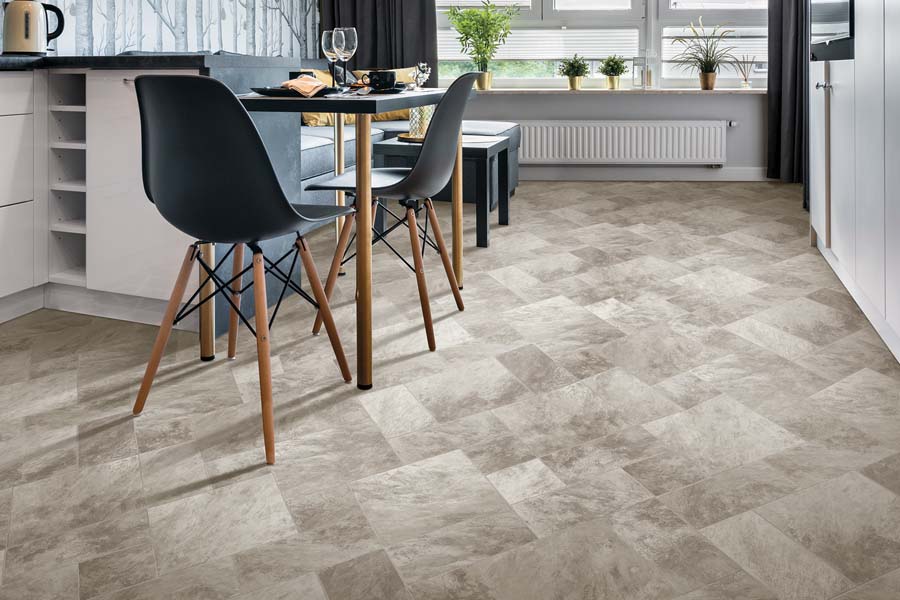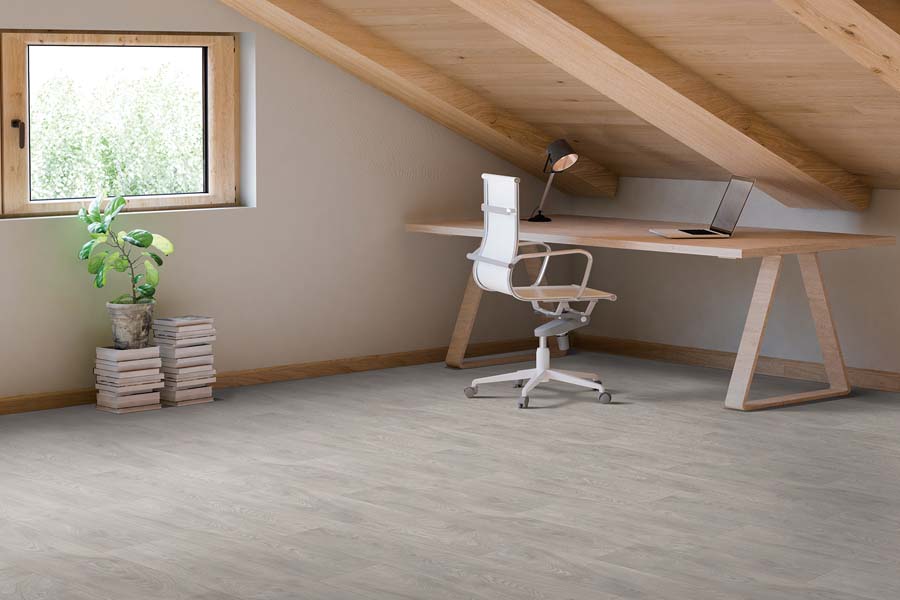Vinyl
3 convenient showrooms in Mancelona, Traverse City & Harbor Springs
You should take into consideration many factors when you are determining which flooring material to select for a specific application. For example, your flooring may need to stand up to rolling carts or support standing (static) loads. Moisture resistance may be critical, as might resistance to fading. Each manufacturer can provide detailed information on the performance characteristics of its flooring, as well as proper installation and maintenance to avoid damage. You should expect long-lasting beauty from properly installed and maintained vinyl floors.
Design flexibility – Vinyl sheet flooring and tile are available in myriad styles and colors. Vinyl tile is available in shapes that can be custom cut and laid out in patterns using different colors or finishes. Tiles can be arranged, for example, to depict a corporate logo or to guide traffic in a hospital or retail setting. Virtually any look can be obtained to suit any decor, including classic looks that simulate wood and ceramic. Custom-made designs are easily created using sheet vinyl flooring.
Resilience – Vinyl flooring reduces noise and provides comfort underfoot. Unlike such hard surfaces as wood, laminate, terrazzo or ceramic tile, vinyl floors have “give” and thus are referred to as “resilient” flooring.
Durability – Vinyl flooring is durable and time-tested, maintaining its beauty under heavy foot traffic and use. It is moisture and stain resistant, so spills can be easily removed. When compared with alternative materials, vinyl offers an attractive installed cost with economical maintenance over the life of the floor.
Aesthetics – Today’s vinyl floors are made to enhance the aesthetic features of an interior environment. While often mimicking the look of other hard surfaces, they are “warmer” than ceramic tile. Designers can use pattern and color to make a large room seem smaller or a small room more expansive. And since vinyl is durable, the color and original appearance will last longer with routine maintenance.
Safety features – A wide range of both tile and sheet vinyl floors is available with enhanced slip-retardant surfaces. These floors are suitable for a variety of commercial and institutional applications. Because they are vinyl, these slip-resistant surfaces are easy to clean. Check with manufacturers for vinyl floors designed to meet other special needs like static control.
Healthcare applications – Vinyl flooring frequently is used in healthcare facilities because it is nearly impervious to water, offering a significant sanitary advantage over carpeting. These characteristics are particularly important in hospital rooms, extended care facilities, nursing homes and day care centers. Many commercial sheet vinyl floor installations offer sealed or welded seams that prevent contaminants from being lodged in the seam area. And with fewer seams than most other hard surface floors, bacteria have fewer places to hide and grow. Disinfectant cleaners can provide a sterile surface without damaging the floor. In addition, most stains can be easily removed. Check with the manufacturer for complete maintenance instructions.
For hypersensitive populations, where mold allergies may be a problem, vinyl flooring offers advantages as well. Researchers at the University of Nevada at Las Vegas have found that carpet can produce high airborne mold counts, which can actually be aggravated by vacuuming. Vinyl flooring, on the other hand, can be cleaned without dispersing high levels of mold into the air.
Sports facilities – Sheet vinyl flooring products can provide an attractive alternative to expensive wood flooring systems in gymnasiums, exercise rooms and other recreational areas. The no-wax stain-resistant surfaces of these floors mean lower maintenance costs and greater usage than traditional floors — and these surfaces will accept paint lines for use as a basketball, racquetball or volleyball court. High-density vinyl foam cushion backing systems provide a shock absorbing surface that reduces impact shock and leg fatigue. Many of these surfaces are protected by a clear wear layer and a high-performance, polyurethane surface and comply with NCAA basketball rules for bounce, rebound and hardness.
Limitations – Vinyl floors are not recommended for use in most commercial kitchens, although vinyl composition tile is commonly used in light duty kitchens and both tile and sheet vinyl floors are the leading choice for residential kitchens. Some vinyl floors can be susceptible to tears when heavy or sharp objects (such as cans or knives) are dropped. In addition, they can be subject to permanent indentation from static loads or damage from rolling loads. Vinyl flooring also may not be recommended for automotive maintenance areas or automotive showroom areas unless the flooring is protected from oil spills and contact with rubber tires. In addition, vinyl flooring is not recommended for outdoor installation, where excessive heat, cold or sunlight may cause fading and discoloration.

